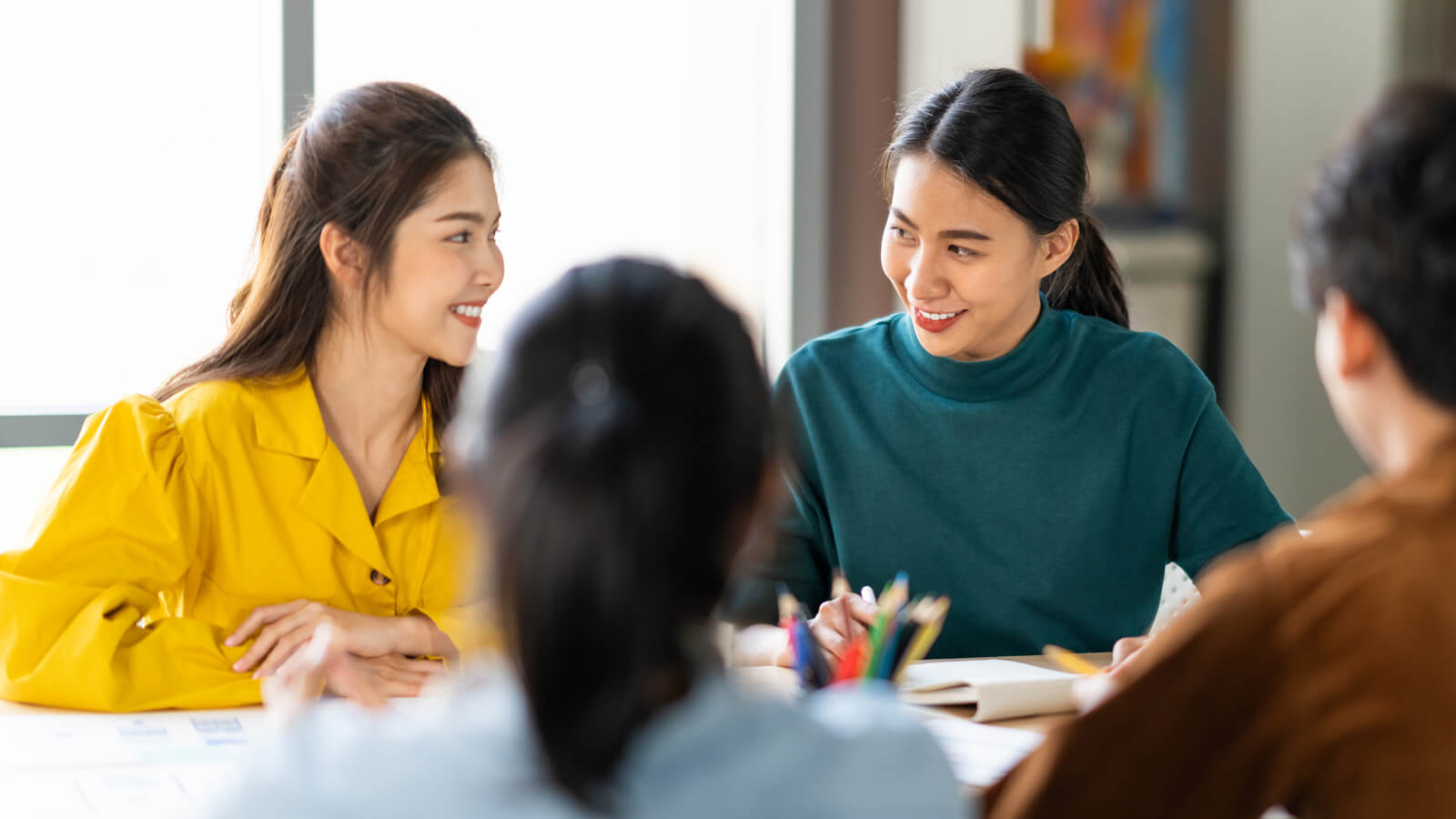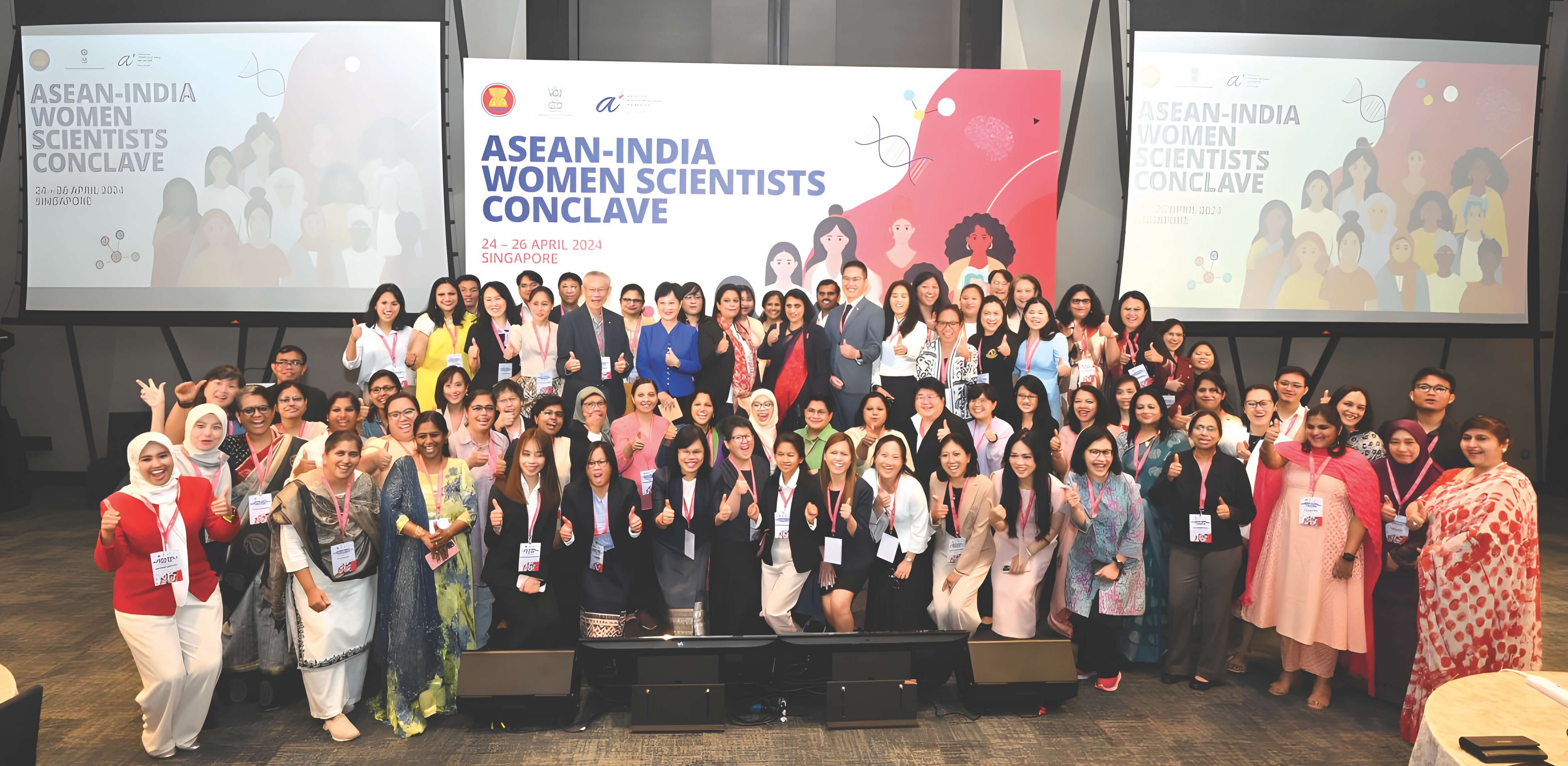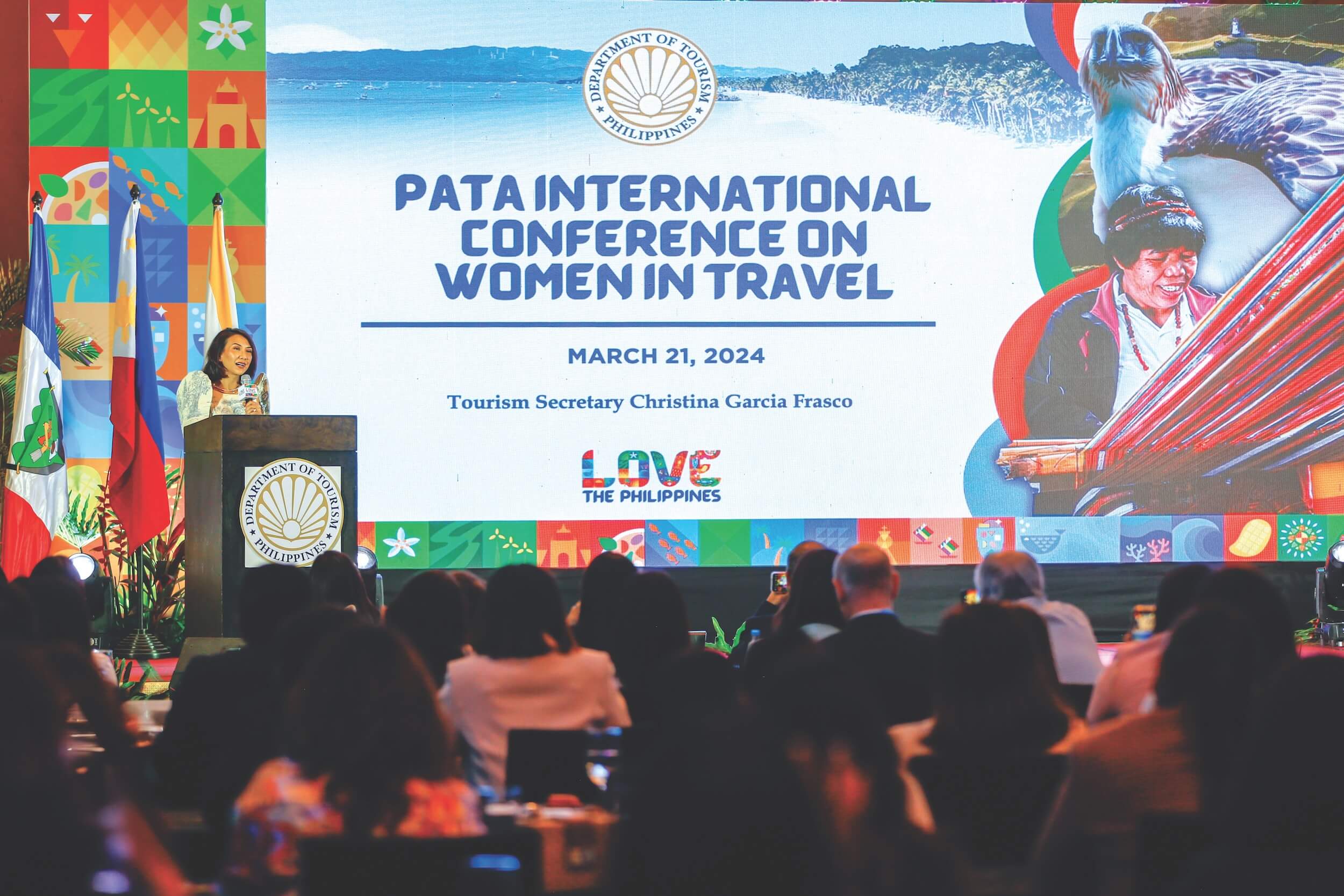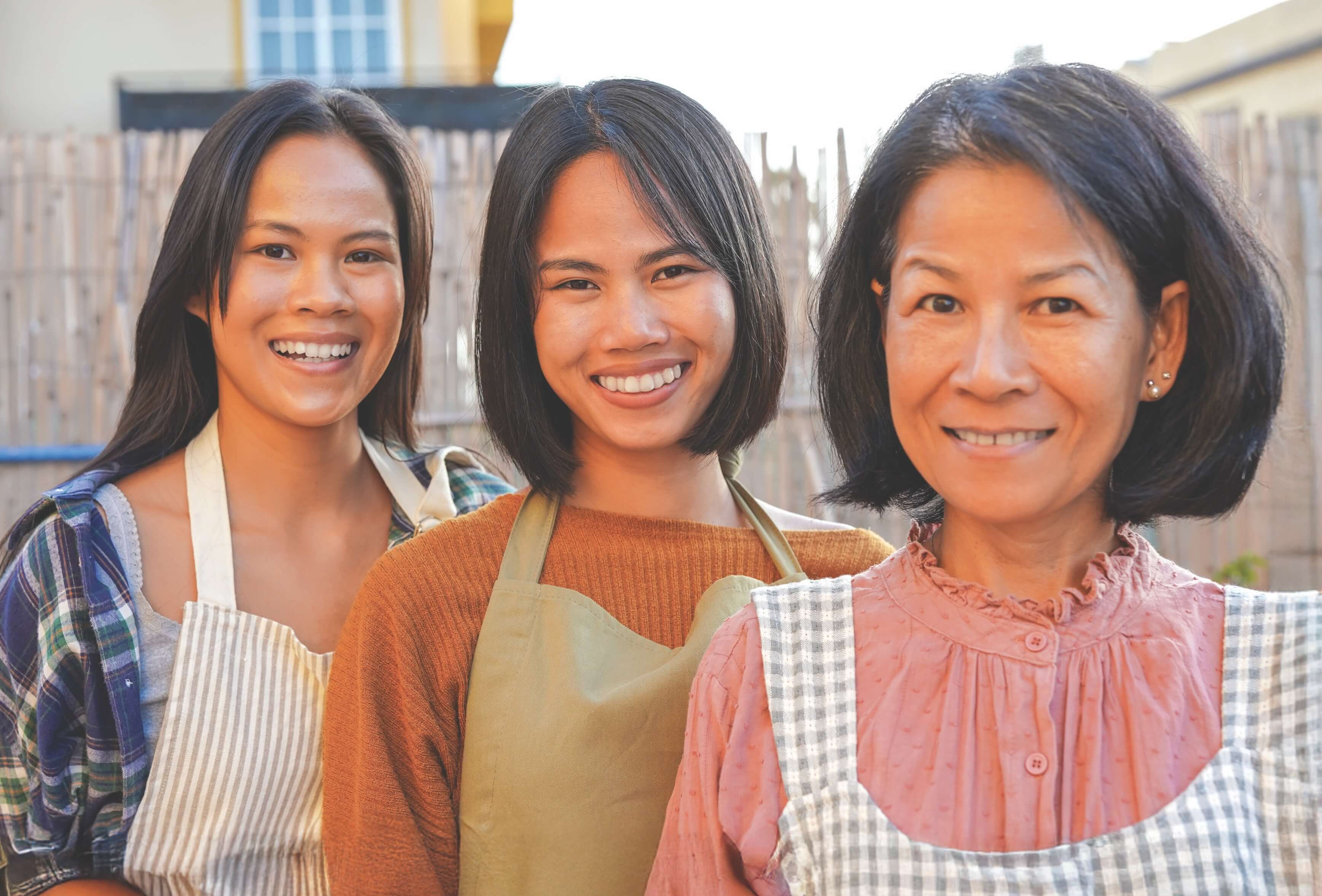



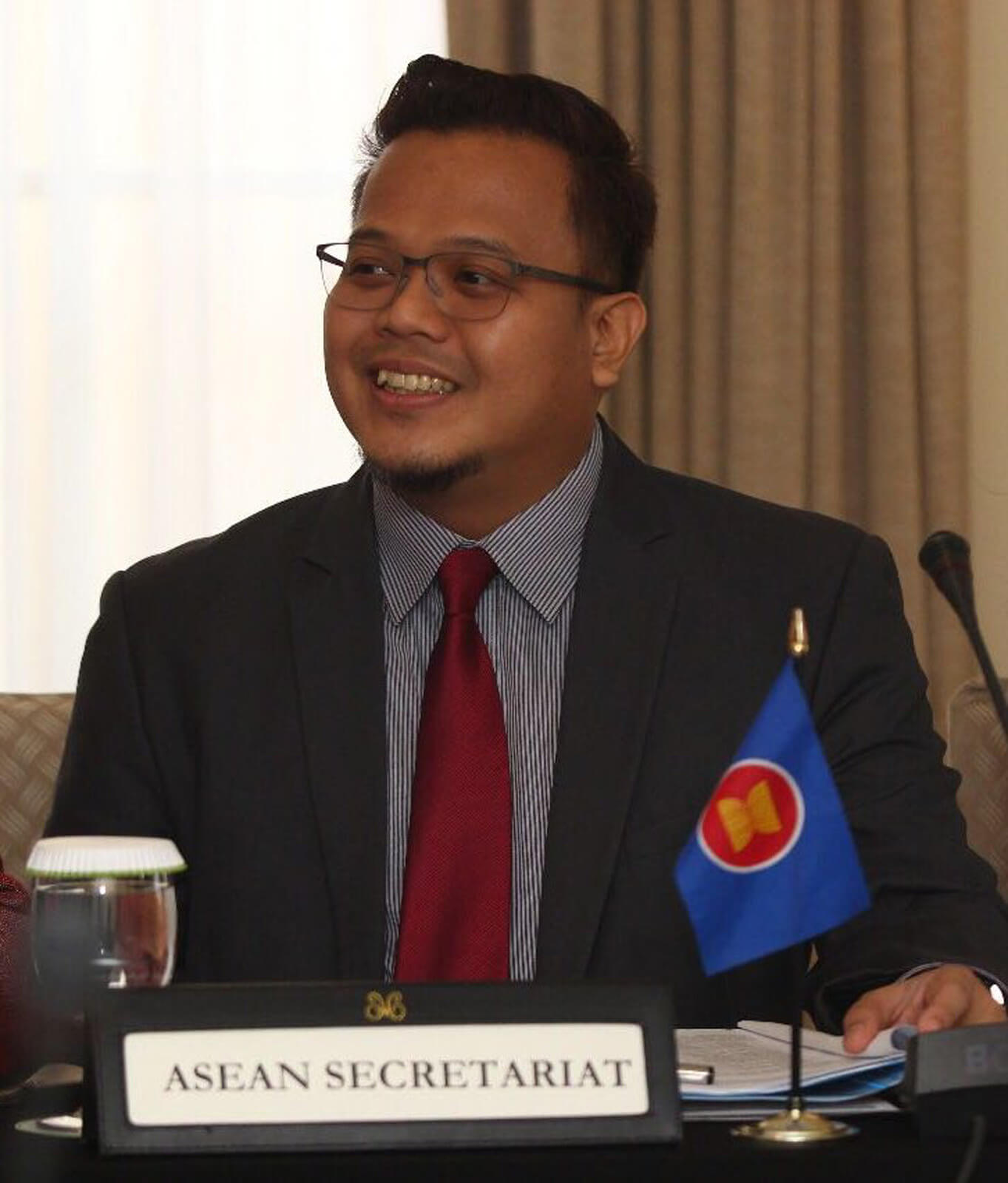
ASEAN’s cooperation on advancing gender equality and empowerment of all women and girls sits squarely within the region’s ongoing recovery from the COVID-19 pandemic, and intersects with current and emerging challenges, such as demographic shifts, digitalisation of the region, and security issues, among others. With ASEAN asserting its central and strategic role in the Indo-Pacific region, there are widening spaces for women and girls to amplify their voices and for robust, substantive and meaningful representation in building a gender-transformative and resilient ASEAN Community.
Gender mainstreaming in the ASEAN Community
ASEAN uses a whole-of-ASEAN approach to introduce and institutionalise gender perspectives in its work. Such an approach is guided by the principle that addressing fundamental gender gaps is a moral imperative and a sound economic proposition: one that leads to reducing poverty and inequality and promotes inclusion and resilience in the long run.
The ASEAN Leaders officially adopted the ASEAN Gender Mainstreaming Strategic Framework (AGMSF) during the 40th and 41st ASEAN Summits held in November 2022 in Phnom Penh, Cambodia. The journey to develop the framework started in 2015 when the 2nd ASEAN Ministerial Meeting on Women or AMMW mandated the ASEAN Committee on Women or ACW to develop a gender mainstreaming strategy and introduce gender perspectives in the ASEAN Community. The ASEAN Commission on the Promotion and Protection of the Rights of Women and Children or ACWC subsequently joined the ACW and is now co-leading the initiative.
To accelerate the AGMSF’s implementation, the Special ACWC-ACW Consultation Meeting on Gender Mainstreaming in ASEAN Community was held in November 2022 in Ha Noi, Viet Nam. During this meeting, the roles of ACW and ACWC were defined clearly as co-leads in coordinating the implementation of the AGMSF. They will also provide technical and providers of technical support to other ASEAN Sectoral Bodies on matters related to gender equality and women’s empowerment. The two bodies will act as advocates of gender mainstreaming at the national level, especially in connecting national gender mainstreaming initiatives with those of the AGMSF.
The AGMSF has two visions in mainstreaming gender perspectives across the three ASEAN Community pillars:
By 2025, “ASEAN will have a clearly articulated, coordinated, and accountable approach to gender equality and inclusion, and the individual and collective attitudes of Member State’s officials and ASEAN staff toward the importance of gender and inclusion will be transformed and reflected in behaviours and selected work. All Sectoral Bodies and Secretariat staff will have increased knowledge about the gender and inclusion dimensions of their sectors, and these will be increasingly discussed across the organisations and at senior levels.”
And beyond 2025, “ASEAN will be an example of change-focused inter-governmental leadership on gender and inclusion issues in the region. With a clearly defined agenda on gender equality that provides strategic, evidence-based support to inter-governmental processes. ASEAN will act as a forum for knowledge, dialogue and ideas; facilitate an effective interface between women’s organisations and movements and national governments; deliver gender-transformative programming; act as an authoritative voice championing the issues of the poorest and most vulnerable women and girls in the region; shape donor priorities; and contribute to the international conversation.”
Subsequently, the First ASEAN Gender Mainstreaming Steering Committee (AGMSC) Meeting was held in February 2023 in Vientiane, the Lao PDR. The representatives from various ASEAN Sectoral Bodies and ASEAN Entities emphasised that mainstreaming gender perspectives is an urgent concern of all sectoral bodies, ASEAN’s partners, and relevant stakeholders. It was evident that there is a promising trend in the region, where more ASEAN Sectoral Bodies are working with partners to surface and articulate the gender dimensions of their sectoral work. Some concrete examples of sectoral gender-related initiatives include:
- ASEAN Guideline on Gender Mainstreaming into Labour and Employment Policies Towards Decent Work for All, led by the Senior Labour Officials Meeting
- Guidelines for Operationalising the ASEAN Regional Framework on Protection, Gender, and Inclusion in Disaster Management, led by the ASEAN Committee on Disaster Management
- Gender mainstreaming in the Science, Technology and Innovation: Sensitization and Socialization of Gender Equality and Women Empowerment, and the ASEAN Gender Mainstreaming Strategic Framework, co-organised by the Committee on Science, Technology and Innovation (COSTI) with ACW
- AMAF’s Approach to Gender Mainstreaming in the Food, Agriculture, and Forestry Sectors, developed by the ASEAN Ministers Meeting on Agriculture and Forestry
- Roadmap on Accelerating ASEAN Renewable Energy Deployment through Gender-Responsive Energy Policy, being implemented by the ASEAN Centre for Energy (ACE)
Integration of gender perspectives in the work plans of the ASEAN Intergovernmental Commission on Human Rights (AICHR), ASEAN Coordinating Committee on Micro-, Small-, and Medium-Enterprises (ACCMSME), and Framework Action Plan on Rural Development and Poverty Eradication 2021-2025.
Moving forward, Indonesia, as the ASEAN Chair in 2023, is preparing to convene the Second AGMSC Meeting and the Conference on Gender Mainstreaming in ASEAN Community. In line with the theme: “ASEAN Matters: Epicentrum of Growth,” the meeting and conference will provide space to support the priority initiatives of relevant ASEAN sectoral work plans that advance gender equality and women empowerment.
Women, peace, and security
As part of its mainstreaming initiative, ASEAN seeks to involve women in peace and security processes and decisions. This is articulated in the Joint Statement on Women, Peace and Security (2017) and a key recommendation of the ASEAN Regional Study on Women, Peace, and Security (2021). To implement this vision, the ASEAN Leaders adopted the ASEAN Regional Plan of Action on Women, Peace and Security (ASEAN RPA WPS) during the 40th and 41st ASEAN Summits.
The ASEAN RPA WPS is a landmark regional framework within ASEAN and outside the region that expands the understanding of the WPS agenda and moves beyond conflict settings. It covers the four pillars of the WPS, namely, protection, prevention, participation, and relief and recovery. In addition, the ASEAN RPA WPS looks into non-traditional security issues such as cybersecurity, disaster risk reduction and resilience, and women economic empowerment, among others. Similar to the AGMSF, a whole-of-ASEAN approach is at play to bring the WPS agenda into fruition. This approach will strengthen the role of women in peacebuilding in the region and institutionalise engagements with civil society organisations, specifically women’s groups, and stakeholders to ensure the successful implementation of the regional plan of action.
The ASEAN RPA WPS was launched in December 2022 in Phnom Penh, Cambodia, simultaneously with its website: https://wps.asean.org. Its implementation is currently being overseen by the Advisory Group on Women, Peace and Security, composed of relevant ASEAN Sectoral Bodies and ASEAN Entities across the ASEAN Community.
Indonesia, as ASEAN Chair in 2023, is preparing to convene the High-level Conference on Women, Peace and Security in ASEAN in Yogyakarta, Indonesia. The conference will provide a venue to affirm the high-level of political commitment towards implementing the ASEAN RPA WPS. It will be an occasion to showcase the progress of developing national action plans on WPS in ASEAN Member States, as well as discuss the localisation of the ASEAN RPA WPS. Also, the conference will highlight the role of civil society and women’s organisations in its implementation and deepen the analysis on the links between WPS and other initiatives, such as preventing violent extremism, recovering from the COVID-19 pandemic, and addressing the impact of climate change.
Addressing gender-based violence
Removing barriers that prevent women from realising their full potential and participating in society continues to be a priority for ASEAN. Hence, it sustained the implementation of the ASEAN Regional Plan of Action to Eliminate Violence Against Women (2015). The ACWC and ACW, in partnership with UN Women, carried out and launched in 2022 the Mid-Term Review of the ASEAN Regional Plan of Action on the Elimination of Violence against Women. The report indicated that the ASEAN Member States have dedicated national policies addressing violence against women, as well as national action plans on eliminating violence against women complemented by multi-sectoral coordinating response mechanisms. Studies on the prevalence of violence against women have been conducted alongside the collection and analysis of administrative data on violence against women across the region. Also, the ASEAN Member States continue to develop law enforcement capacity to respond to violence against women, and prevent it through community-based interventions, such as awareness campaigns.
At the ASEAN level, the ACWC, in partnership with ACW, has been spearheading the regional campaign to end violence against women. Launched in 2018, the initial phase resulted in a massive information campaign targeting women migrant workers who are being trafficked or face the threat of it. The current phase of the campaign centers on creating safe workplaces for women and women migrant workers by engaging the private sector. Specifically, the ASEAN/WE STRIVE (https://www.aseanwestrive.org) is a pledging platform that offers resources and tools for self-assessment tools and guidelines.
Promoting women’s economic empowerment
As ASEAN economies continue to recover from the COVID-19 pandemic, opportunities abound for women to regain their livelihood or enter the labour market. However, these working women are not a homogenous group. There are women in the rural and urban areas who are involved in the value chain, women in formal and informal economic sectors, and women in at-risk and vulnerable situations, among others.
ASEAN seeks to ensure their economic inclusion. In October 2022, it convened the 2nd ASEAN Women Leaders’ Summit in Phnom Penh, Cambodia on the theme “Building a More Sustainable, Inclusive and Resilient Future: Unlocking Women’s Entrepreneurship in ASEAN.” The summit served as a strategic platform for ASEAN Leaders, women leaders from ASEAN Member States, and heads of relevant ASEAN sectoral bodies to exchange and deliberate on the challenges and opportunities for women’s entrepreneurship development and for promoting transformative change towards a robust recovery of women-led and owned MSMEs from the COVID-19 pandemic.
The summit was followed by the ASEAN Women Entrepreneurs Conference and Awards Ceremony, which underscored the immense contribution of women entrepreneurs and women, in general, in the economy and labour force in ensuring inclusive and sustainable economic growth.
The preceding events ushered in the adoption of the Declaration on Building a more Sustainable, Inclusive and Resilient Future: Unlocking Women’s Entrepreneurship in ASEAN in November 2022, which guides how to grow women-owned and led enterprises.
The road ahead
With the Lao PDR as the current ACW Chair, the spotlight is cast on the connections between addressing unpaid care and domestic work and promoting social protection. In March 2023, the High-level Learning Exchange on Care Economy and Social Protection between the Royal Government of Cambodia and the Lao PDR was convened to facilitate an exchange of knowledge and good practices between the Ministry of Women Affairs of Cambodia and the Lao Women’s Union of the Lao PDR in the areas of unpaid care and domestic work and strengthening social protection in ASEAN.
The Lao PDR is likewise moving forward with the recommendations from the State of Gender Equality and Climate Change Report in ASEAN. A cross-sectoral consultation will be conducted to engage relevant sectoral bodies and inform future cross-sectoral collaboration on gender equality and climate change. This is in line with the implementation of the Vientiane Declaration on Enhancing Gender Perspective and ASEAN Women’s Partnership for Environmental Sustainability (2012).
Download:
ASEAN Gender Mainstreaming Strategic Framework:
https://asean.org/book/asean-gender-mainstreaming-strategic-framework-2021-2025/
ASEAN Regional Plan of Action on WPS:
https://asean.org/asean-regional-plan-of-action-on-women-peace-and-security/
Declaration on Building a more Sustainable, Inclusive and Resilient Future: Unlocking Women’s Entrepreneurship:
